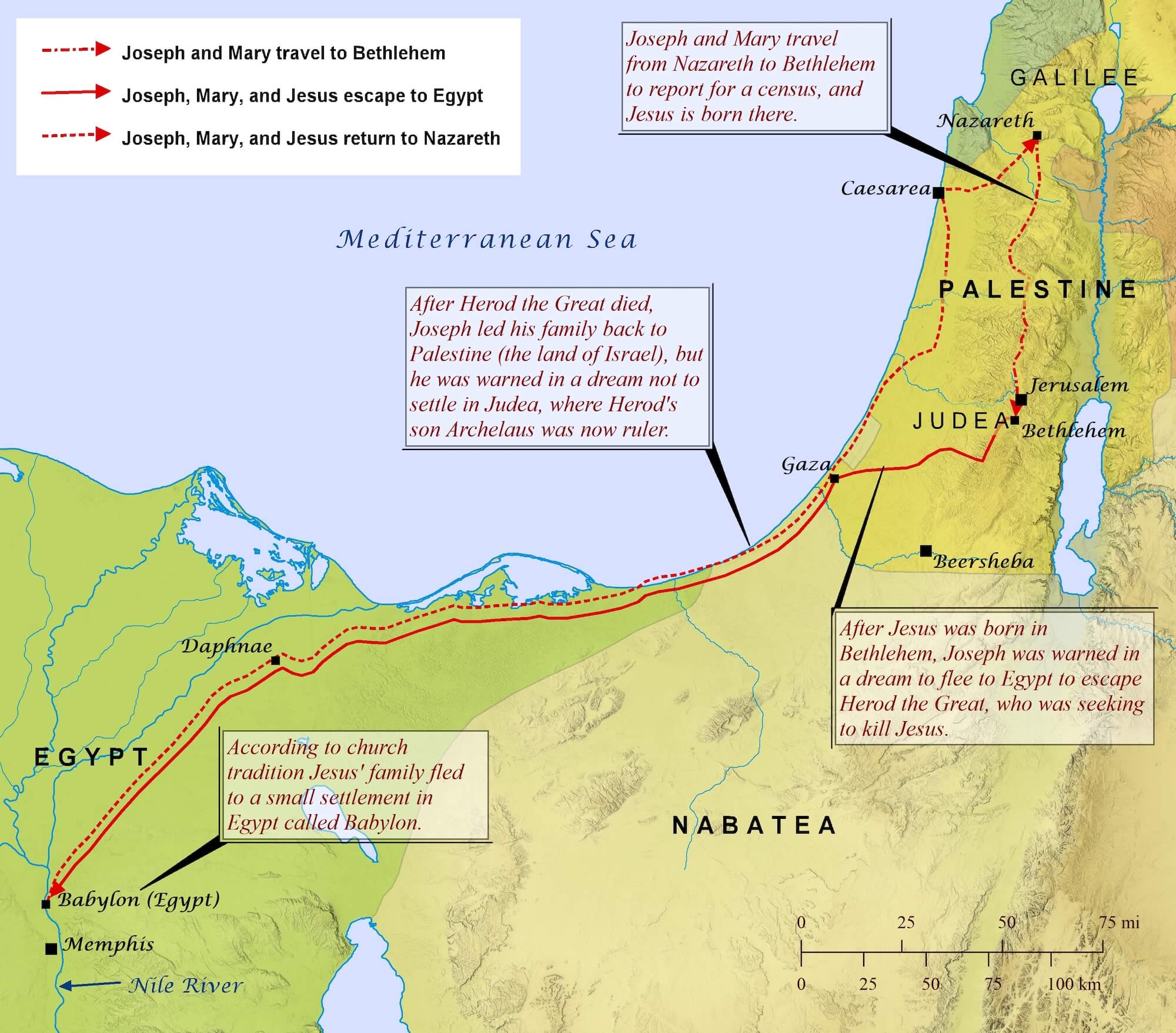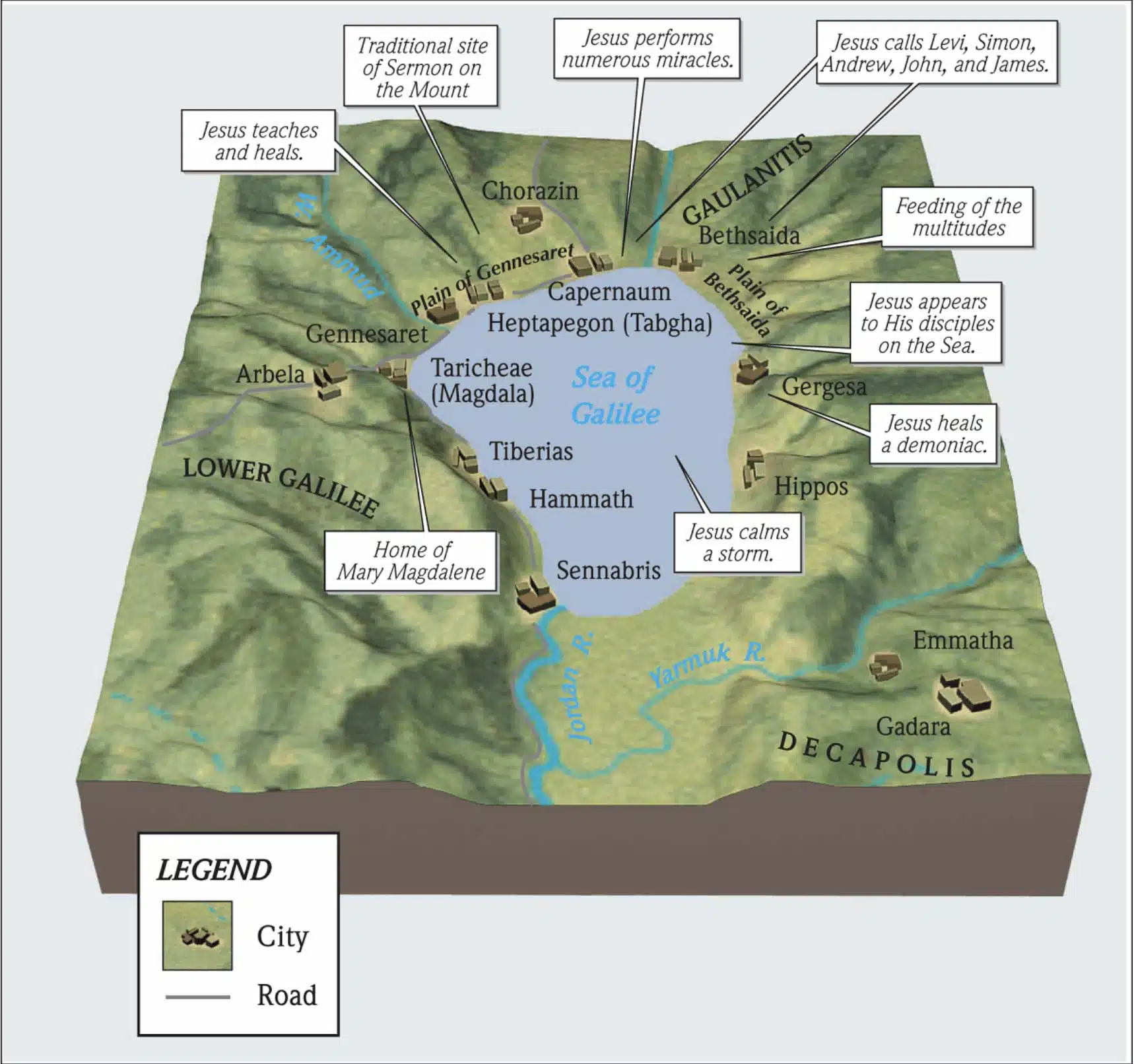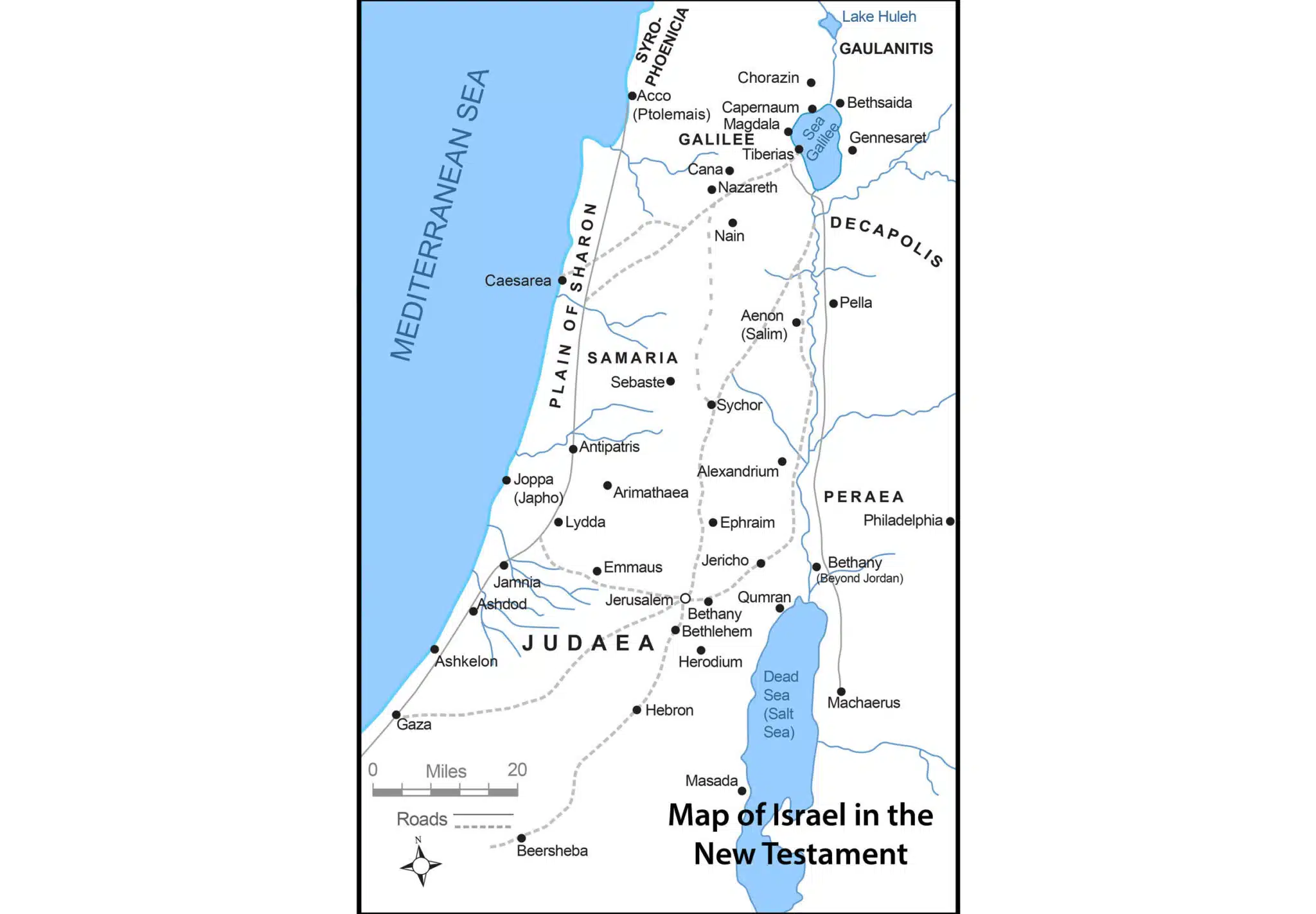An angel commands Joseph to take his young family away from Bethlehem and to flee to Egypt, because Herod will soon try to kill Jesus. Joseph obeys and stays there until Herod dies. Matthew highlights that this action fulfills the prophecy from Hosea, “Out of Egypt I called My Son.”
There is no apparent parallel account of this event in the Gospels.
After the magi had gone, God sent an angel of the Lord who appeared to Joseph in a dream. The angel of the Lord commanded Joseph to get up! To awaken and take the Child and His mother and flee to Egypt right then. The angel of the Lord gave Joseph an explanation why he needed to take immediate action to flee Bethlehem: Herod is going to search for the Child to destroy Him (v 13).
Joseph is told not only to leave the surrounding area of Judea, but to go all the way to Egypt, far from Herod’s jurisdiction. The modern border of Egypt is roughly 400 miles from Bethlehem, so this would have been a substantial journey in an era where walking and leading animals was the primary mode of transportation. It likely took a month or more to make the journey. But Joseph is immediately obedient to God’s warning. He got up and took the Child and His mother and began the journey while it was still night (v 14). He did not even wait until morning light. He started the journey immediately. It seems God provided the funding for their long journey through the gifts of the magi. Immediately after the magi had gone Joseph departed for Egypt, the same night. We are not told Mary’s reaction to being awoken in the middle of the night with the explanation, “We are going to Egypt because I had a dream, and we need to leave right now.” But we know Mary left with Joseph while it was still night.
Joseph keeps his family safe in Egypt until after Herod’s death, which took place in 4 B.C. Jesus would have been two years old when Herod died. (This is because when our current calendar was set to begin at the birth of Jesus, there were some miscalculations made at the time, resulting in Jesus being born in 6 BC which originally stood for “Before Christ.”)
Matthew informs his audience that the holy family’s temporary residence in Egypt was a fulfillment of Hosea 11:1,
“When Israel was a youth I loved him,
And out of Egypt I called My son.”
For the third time Mathew emphasizes that Jesus was the fulfillment of the Messianic prophecies. He explains how a Jewish boy from Nazareth, a town some 70 miles north of Bethlehem, could both be born in Bethlehem as well as be called out of Egypt.
Biblical Text
13 Now when they had gone, behold, an angel of the Lord appeared to Joseph in a dream and said, “Get up! Take the Child and His mother and flee to Egypt, and remain there until I tell you; for Herod is going to search for the Child to destroy Him.”
14 So Joseph got up and took the Child and His mother while it was still night, and left for Egypt. 15 He remained there until the death of Herod. This was to fulfill what had been spoken by the Lord through the prophet: “Out of Egypt I called My Son.”
Check out our other commentaries:
-
Deuteronomy 15:12-18 meaning
Moses asks every Hebrew master to release his Hebrew servant after six years, unless the servant decides to remain with him. ...... -
Genesis 5:25-32 meaning
Methuselah was the father of Lamech and the grandfather of Noah. God chose Noah for a special purpose. Noah was the father of Shem, Ham,...... -
Exodus 7:1-7 meaning
This passage is the LORD’s response to the latest iteration of Moses using the excuse that he is not eloquent enough to talk to Pharaoh....... -
Deuteronomy 6:20-25 meaning
Moses encourages the Israelites to study their redemptive testimony well in order to share it with boldness with their descendants in the future. ...... -
Deuteronomy 19:4-7 meaning
Moses explained the purpose of setting aside the three cities of refuge in the Promised Land by providing a case in which one man goes......





